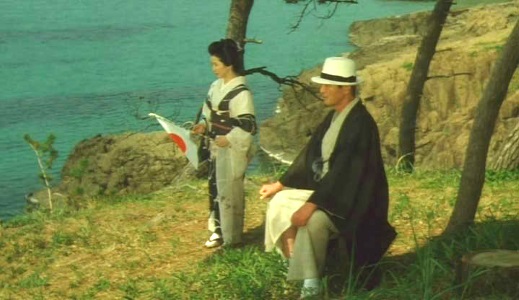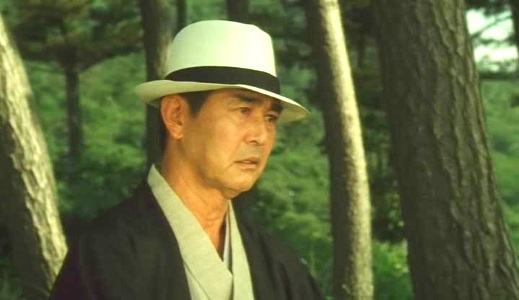Nagasaki Burabura Bushi
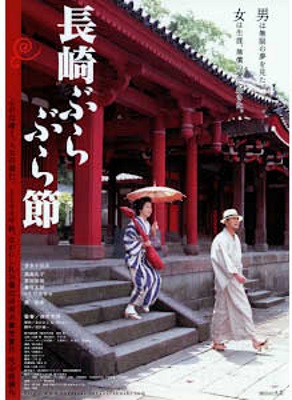
Director: Yukio
Fukamachi
Year: 2000
Rating: 8.0
Aka - It is a Long Walk
This period Japanese film is a gentle, calm
almost Zen like journey into the past that is shot beautifully with great
period sets and detail. It is very heartfelt as it narrates the life of a
woman from her childhood till her old age. She was real as well and the film
is based on a book about her life. It begins in 1883 and ends in the early
1930s. History passes, life weighs her down and gives the film a growing
melancholy sheen that you feel inside. And always in your mind is that this
takes place in Nagasaki and on one fateful day in 1945 it all ends. The people,
the beautiful structures, the geisha houses and their performances, a lifestyle
lost. The film doesn't get us there, but time is noted and historical events
are referred to. Most of us will never effect history, just be witnesses
to it. But primarily it is about Aihachi (Sayuri Yoshinaga) who as a young
girl was sold to a geisha house in the Maruyama district of Nagasaki to pay
family debts. It is 1883.
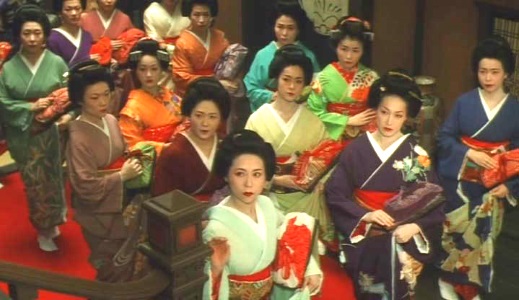
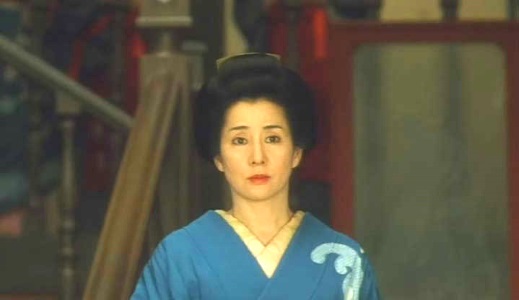
But this doesn't become a tale of the hardships
of prostitution or the cruel endurance of surviving. Just the life of this
woman as she goes through it. Gently, passively, generously. By the time
the film picks up again after the prologue it is 1920 and Aihachi is into
her fifties - an auntie type looking after the girls and others she comes
upon. She now is part of the entertainment, playing the samisen and singing
in the old-fashioned manner. The director Yukio Fukamachi stays far away
from anything prurient - there is no talk of sex or prostitution except in
one instance when Aihachi begs the owner not to make a young girl become
one.
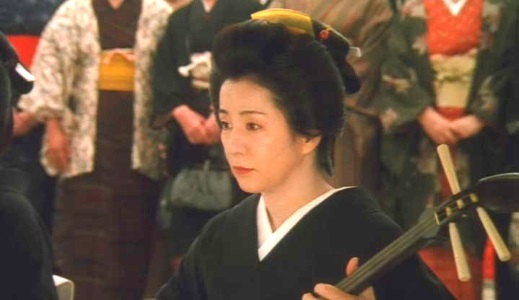
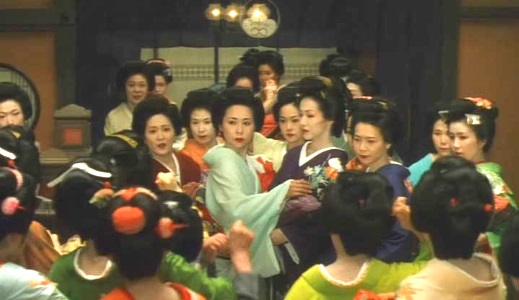
The geisha house is closer to a sorority
than what we have seen in other films. The girls all get along, take pride
in themselves and protective of each other. In one sequence Mr. Koga (Tetsuta
Watari) a legendary big spender brings in the geishas from another house
- much to the displeasure of these geishas - and they almost have a cat fight
before he puts a stop to it and says let's compete - in music, dance and
games. It is a wonderful trip back into time as the women in their best colorful
kimonos perform. Aihachi is in the background just playing and soon leaves
disgusted. She tells Mr. Koga so - especially after he just tosses yen into
the air to see the woman scramble for it. Ok, he says, now undress but the
camera doesn't linger.
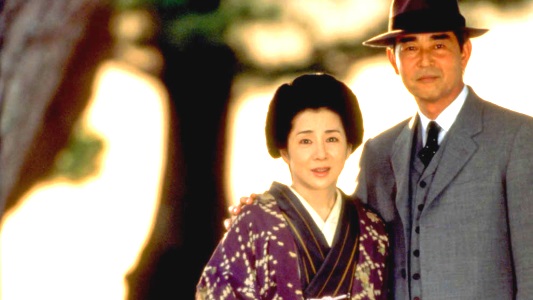
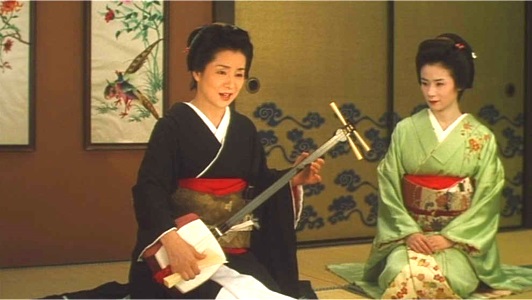
But Koga is going broke - intentionally
- he inherited money that he doesn't feel he deserves and what better way
to get rid of it than being entertained in a geisha house. It does
look rather wonderful. The film takes a turn when he hears Aihachi singing
an impromptu song mourning the deactivating of a battleship because of a
treaty with Western powers. He is amazed and looks her up. I am broke now
- but I need your help - I want to find and preserve all the local folksongs.
And that is the journey they go on for two years - stopping everywhere and
asking people to sing songs they remembered from childhood.
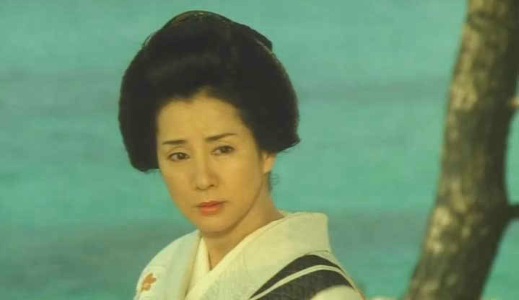
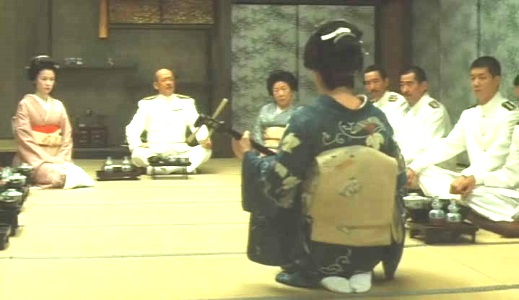
There are a number of side stories that
involve Aihachi but it is the totality of all the pieces that makes this
rather wonderful. The film is slow but pulls you into the life of this woman
so that by the end, you are totally invested in her. The film is filled with
quiet subtle emotional moments that hit home. I am not familiar with the
work of actress Sayuri Yoshinaga, but from a little reading it appears she
is considered one of the top post WWII actresses and has won four Best Actress
Awards. She is phenomenal here - nothing flashy, never even raises her voice
- just restrained and real.










